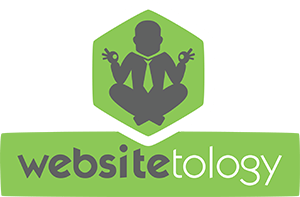Found this in research for a client project. I’m not sure I agree with his first statement, since content gets you connections, but the rest is there.
As to taking more homework to understand the social media aspects of web 2.0, that’s why we teach Websitetology, we give our students the knowledge to make sites that work.
Getting small fast isn’t as important as being fast period. Sometimes the window for getting attention is so short that someone else will eat your lunch before you even finish ordering it.
Ketchum Interview on PR & Social Media at Like It Matters
Social media is about connection, not content.
Social media is about them, not you.
Social media may be cheaper initially, but it takes far more homework.
Get small fast. (Niche is nice. Think smaller feature sets, more targeted audiences, less chatter from you, and so on.)
Relax, it’s early in the social media game. You’re not behind, because everyone’s just trying to figure out the new environment.
We’ve been running the seminar for almost a year now- and people still are resisting the idea that a website can be a lot more than a brochure or a store. Ideally, you are building a community of like-minded people who are interested in the needs your business serves.
Target marketing is finally becoming a reality with social media.
Found the following article while doing some research for a client brief. It’s one of the best explanations of why a WordPress site (or other web 2.0 style site) is the natural evolution for a business website.
I only picked a paragraph to quote, I highly recommend you head over and read the whole thing:
O’Reilly Network — Building Online Communities
Exist For a ReasonYou must know why your site exists. Otherwise, you cannot judge the effectiveness of any policy. Worse yet, how will visitors know if they want to join the community? What benefit does a user derive from participating? Why should anyone care? Without an underlying goal, it’s extremely difficult to guide users in constructive ways. It would be like starting a company and forgetting that, at some point, you need paying customers.
Why are you online? What problem are you trying to solve? Remember, 80% of Internet use begins with a search- what are they looking for, and how are you providing it?
Although Google does a fine job of locating WordPress content (especially if you alt tag everything and categorize properly) there are other ways to find what’s up on blogs:
Track What Bloggers are Saying – Bill’s Buzz Marketing Blog – ECNext
Blogpulse is an AC Nielsen service with a simple interface and some trending reports.IceRocket searches not only blogs by MySpace as well, another CGM channel that deserves monitoring. IceRocket also offers a trending tool.
Technorati often uncovers blogs not picked up by the other engines, but usually returns the fewest results for searches I conduct.
And of course, there’s the small start up known as a Google. Goog’s Blog Search returns the greatest number of results for the searches I’ve conducted and has that oh so friendly and simple Google UI.
This is by no means a comprehensive list- and there are other sites, like Digg, that help you find out what people are talking about, interested in, or posting about.
Most people don’t start at one of these sites for search, they start at a major search engine like Google, but, times change, and it never hurts to be aware of what’s out there.
Remember, Search Engines don’t all index the same thing- or give the same results, so it never hurts to have many of them available for different searches.

